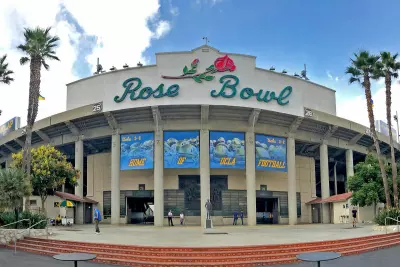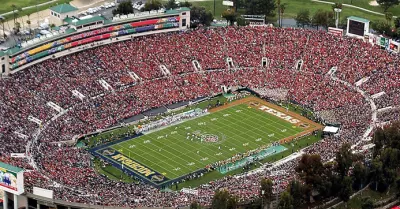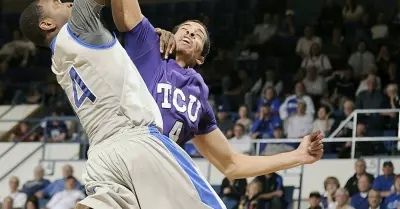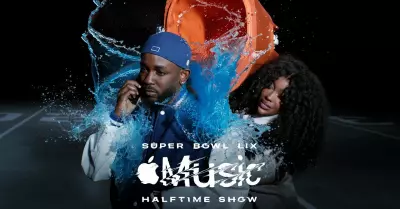What’s your favorite college football bowl among the so-called New Year’s Six?
Happy holidays and hold onto your hats for the upcoming college football bowl bonanza! There are 40 bowls on tap – forty – starting on Dec. 20, running through Jan. 6, and that’s not even including the College Football Playoff National Championship on Jan 13!
We know not all bowls are created equal, though, which is why the six most prominent bowls are now in their own category known as “The New Year’s Six.” We at Inside Tailgating think that makes them the perfect choice for our December Select 6. Which college football bowl is the best?
On the eve of the bowl selection show (speaking of bonanza! It airs Dec. 8 on ESPN from noon to 4 p.m.) we invite you to vote for what you believe is the best of the best. Use whatever criteria you like. Best matchups? Best location? Best tradition? All of the above? Can’t decide which one to choose? Vote for the bowl you would go to if given a week off from work, a complimentary RV and free tickets to any of the six games.

We have a full breakdown of the New Year’s Six bowls in our holiday issue of Inside Tailgating magazine. Here is a quick refresher to help with your decision:

- Rose Bowl: Nicknamed the “Granddaddy of them all” the Rose Bowl is the original college bowl game. Its history dates back to 1890 when the first Tournament of Roses Parade was held. Its first football game was played in 1902 and by 1916 it was an annual event. Since 1947, the Rose Bowl has featured the best teams from the Pac-12 and the Big Ten, matching up powerhouses like USC, UCLA and Stanford with heavyweights like Michigan, Ohio State and Wisconsin.
- Orange Bowl: Proximity to South Beach and games that have often featured Florida’s top programs make for a festive bowl atmosphere. The Orange Bowl has the history too. It’s the second oldest bowl behind the Rose Bowl, dating back to 1932 when its creators were trying to boost Miami’s economy after the Great Depression. Some memorable moments? Three Miami Hurricanes title wins (’84, ’88, ’92,) Joe Namath’s MVP performance for Alabama in 1965, Clemson’s win in 1982 with William “Refrigerator” Perry, and the final meeting between coaches Joe Paterno of Penn State and Bobby Bowdon of FSU in 2006.
- Sugar Bowl: A New Year’s Eve celebration in one of the biggest party cities in the U.S.? A Mardi Gras-worthy parade through the French Quarter the night before? Yes and yes! And that’s not even considering the matchups on the field, usually between powerhouses from the SEC and Big 12. The 86-year-old Sugar Bowl legacy includes star performances from players like Tim Tebow, Ezekiel Elliott and back in the day Herschel Walker, Dan Marino and Archie Manning.
- Cotton Bowl: Both the bowl and the stadium it was named for got their start at the Texas State Fair during the 1930s, which is a great indication of how big a role football plays in what Texans like to do for fun. The Cotton Bowl has been the centerpiece of college football in Texas ever since, as well as the site of the Red River Shootout between Texas and Oklahoma. Eventually the bowl outgrew the stadium for which it’s named and moved to Texas’ mecca of professional football – AT&T Stadium in Arlington, home of the Dallas Cowboys. Now the Cotton Bowl offers both prestige and a state-of-the-art experience.
- Peach Bowl: The Peach Bowl went from second-tier bowl to the big time after a series of events in the 1990s changed its trajectory. It moved indoors to Atlanta’s Georgia Dome, ending a run of bad weather issues, locked up an ACC-SEC matchup and signed a deal with ESPN. Moving into a primetime spot on New Year’s Eve in the 2000s didn’t hurt, and a steady stream of competitive games and sell-out crowds built its national resume.
- Fiesta Bowl: The Fiesta Bowl is a relative newbie compared to some of the most storied college football bowls; it was created in 1971 by Western Athletic Conference officials who thought their league was being slighted by East Coast bowls. The Fiesta Bowl has made up for lost time, hosting nine national championship games in “only” 48 years, including the first BCS national championship game in 1999 when Tennessee beat Florida State.







